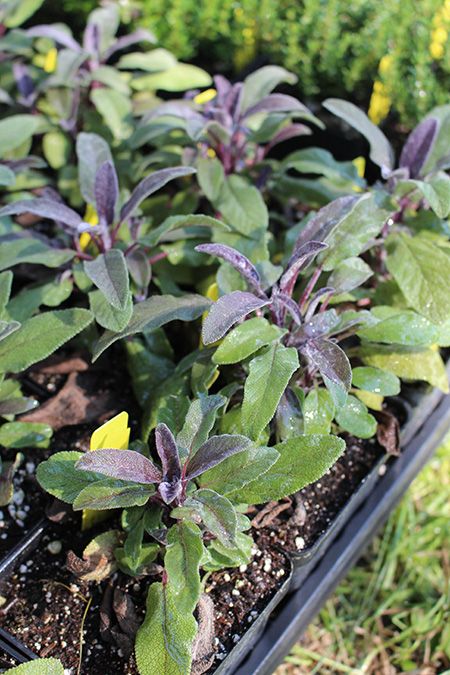Growing herbs has been widely promoted as a way for beginner gardeners to test out their green thumb, and, as we wrote about last month, herbs are a great option for indoor growing if you lack outdoor space. The benefits to growing your own herbs are endless. Herbs are wonderful to cook with. They serve as more than garnishes for your dishes; they provide flavor as well as antioxidants and nutrients. Growing your own herbs also saves you money, since herbs bought at the grocery store usually tend to be a more expensive item. They can be used for medicinal uses, teas, fragrances, gifts, bouquets, and simply for more beauty and color in the garden. Lastly, herbs can be used to attract beneficial pollinators such as butterflies and bees that will keep the rest of your garden happy.
When you plant your herbs outside, perhaps in a kitchen herb garden, consider grouping them by flavor profiles and recipes you may use them in – French, Italian, Thai, English. You may also want to grow them in rows or weave them throughout your vegetable garden. Herbs attract bees and butterflies that will help your nearby vegetables grow through pollination. Herbs such as borage, comfrey, hyssop, lavender, sage, thyme, mint, lemon balm, fennel, angelica, betony, myrtle, and rosemary are excellent food sources for bees. Herbs that attract butterflies are many of the same as for bees, but also consider dill, catnip, chives, parsley, rue, and sweet marjoram. Be sure to let your herbs flower to attract these beneficial visitors that are not only good for your garden but also for the surrounding environment.
Herb plants thrive in fertile soil that drains well. You’ll want to add plenty of rich healthy compost for nutrients. Herbs love compost! Be sure the herbs have plenty of sunlight but also locate your patch near your home for easy access from the kitchen. Harvest your herbs frequently – don’t be afraid to snip and trim the foliage so that the herb plant produces even more foliage, increasing your harvest. At the end of the season, you can easily dry or freeze some herbs to enjoy them during the following year.
Happy herb growing this spring and summer!

